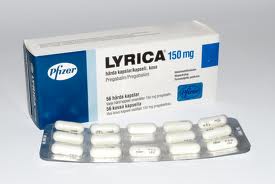Liposuction is always a hot topic, particularly when it comes to ethics. Another hot topic revolves around how much is acceptable for each patient. Many patients who see a professional about liposuction want more out of the surgery than the doctor agrees to give. In fact, it’s dangerous to give a patient more liposuction than the amount that’s been designated by the American Society of Plastic Surgeons (ASPS).
Liposuction is always a hot topic, particularly when it comes to ethics. Another hot topic revolves around how much is acceptable for each patient. Many patients who see a professional about liposuction want more out of the surgery than the doctor agrees to give. In fact, it’s dangerous to give a patient more liposuction than the amount that’s been designated by the American Society of Plastic Surgeons (ASPS).
But what is the safe amount of liposuction that can be administered? Liposuction is not for everyone. According to Dr. David Caminer, a plastic surgeon in New South Wales, the optimum patient is young, has some fat deposits, and their skin is of good quality. Older people are also candidates if their skin is still elastic and firm. If a patient has excess subcutaneous fat, but has good skin texture, and the abdominal musculature is in good shape, then liposuction alone is probably recommended.
As it turns out, the right amount varies from patient to patient, though it’s been difficult to pinpoint that amount in the past. According to a recent study, however, the amount of liposuction that’s safe for a patient to undergo depends on their body mass index (BMI).
Study Indicates “Relative Liposuction Volume Threshold” Based on BMI
The study was performed by Northwestern University and published in Plastic and Reconstructive Surgery. Up until this study was published, ASPS determined the maximum liposuction volume threshold as 5,000 milliliters (five liters), which is considered at very high risk for complications in most patients. In an effort to reduce the complications associated with high volume liposuction, the university began this study, which ultimately revealed that the best way to reduce those complications is to focus on the BMI.
ASPS Surgeon John Y.S. Kim from Northwestern University, Feinberg School of Medicine reported that the study was very revealing. “It calls into question the concept of simple absolute thresholds for lipoaspirate volume—the amount of liposuction that can be performed safely seems to depend in part on how much fat content a person begins with.”
The study compared the data from more than 4,500 liposuction patients in order to evaluate the connection between liposuction and a patient’s BMI. When they administered liposuction to each of these patients based on their BMI rather than on general factors of weight and skin elasticity, there was only a 1.5 percent complications rate with zero deaths.
This practice led researchers to discover that the patients with higher BMIs and a greater liposuction volume had lower complications than those with lower BMIs. In contrast, those who had lower BMIs were at a much higher risk when faced with high liposuction volumes. This is the first study that’s included the BMI as a factor that might affect liposuction volume, and it will continue to undergo scrutiny as more studies are performed.
What Does This Mean for Liposuction?
This study shows that patients with more body fat may be able to handle higher volumes of liposuction than was previously thought. It also shows that those who have a low BMI and have high volumes of liposuction are at increased risk for serious complications. It’s the first study to have shown this correlation, but it may be a game changer for liposuction procedures across the industry.






